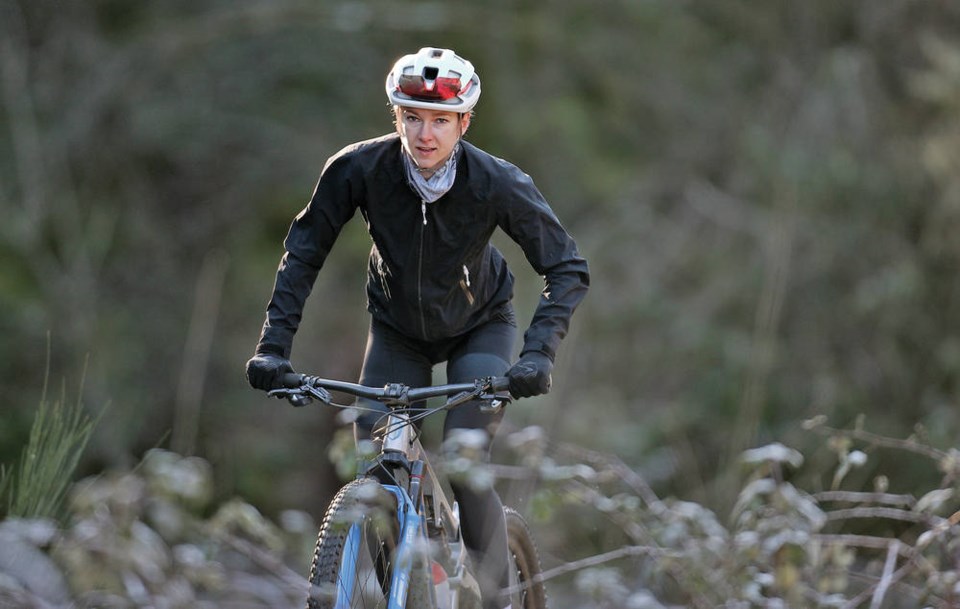Both body and mind need to be healthy for athletes. Too many times the latter is ignored, to the detriment of many. But Haley Smith says much has changed, for the better, in society’s understanding of mental health. She wants to continue moving that discussion forward.
Smith is a top mountain biker, training on Bear Mountain for the Tokyo Olympics, and is speaking out on Bell Let’s Talk Day. It has become an annual event for raising awareness.
“It’s important for people to know they are not alone,” said Smith, who suffered from a life-threatening eating disorder, and went into a deep hole emotionally, beginning as a teenager.
Smith said she stopped sleeping, lost more than 20 pounds, was at risk of heart failure and spent two months in the hospital in her hometown of Uxbridge, Ont.
“It started for me at 14 and I didn’t know what I was going through because I had no reference point. I felt uncertain and like I had no control — totally untethered.”
The 2018 Gold Coast Commonwealth Games bronze medallist wants people to know mental illness is not a moral failing.
“It’s OK to feel what you feel,” said Smith, 27.
“It’s not weakness. You are not weird or any less valuable a human being. It’s just a thing. Everyone has a thing.”
Canada has an historic association with women’s mountain biking with Olympic medals won by three-time world champion Alison Sydor of Victoria capturing silver at Atlanta 1996, Marie-Helene Premont silver at Athens 2004 and Island-trained two-time world champion Catharine Pendrel bronze at Rio 2016. Smith has been labelled The Next One.
But that is not her greatest focus, she said.
“I view my biggest mission in sport as having an impact on people regarding the issue of mental health,” said Smith. “I relish that role of shedding a light on it.”
Smith’s regular weight is between 120 to 125 pounds. During the height of her battle with anorexia, she dropped to “well under 100 pounds.”
She felt the old anxieties returning last year when the 2020 Tokyo Olympics were postponed to this summer.
“The food issue came to the surface again and I lost weight and was under-fuelled,” said Smith.
“My relationship with mental illness is still active.”
Self-awareness, and a better understanding of how to deal with the onset, got her through it: “I knew I was having an obsessive issue.”
Also helping her cope is husband and fellow Bear Mountain-based pro mountain-biker Andrew L’Esperance. The two were married last year.
“It could have gone sideways if not for Andrew,” said Smith.
“Love and support” is among the biggest keys to fighting mental illness. To get that support, you first need to be open and able to talk about your mental-health issues with others, she said. Don’t keep it to yourself.
Smith is among 75 Island or Island-based athletes training for the delayed Tokyo Olympics and Paralympics this summer. The IOC, Japanese government and organizing committee have pushed back hard against a report in the London Times that the Games will be cancelled due to the pandemic.
“I can’t control what the media speculates or what the organizers will or won’t do. I can only prepare as if the Games are happening, and that I will be there fully prepared,” said Smith.
LET’S TALK: Bell will donate five cents to Canadian mental health programs for every call, text, Tweet or TikTok today using #BellLet’sTalk or for every view of the Let’s Talk Day video on YouTube, Facebook, Instagram, Pinterest, Snapchat or Twitter. There is no cost to participants beyond what they would normally pay their service provider. The program has raised more than $113 million for community mental health initiatives across Canada since 2011.
cdheensaw@timescolonist.com



